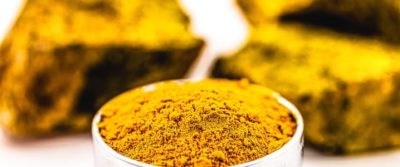Uranium Prices Hit a 12-Year High

All Global Research articles can be read in 51 languages by activating the Translate Website button below the author’s name.
To receive Global Research’s Daily Newsletter (selected articles), click here.
Click the share button above to email/forward this article to your friends and colleagues. Follow us on Instagram and Twitter and subscribe to our Telegram Channel. Feel free to repost and share widely Global Research articles.
***
Dangerous Nonsense
Uranium is used to generate electricity.
The climate movement upholds uranium as a means to reducing “greenhouse gas emissions”.
The dangers of the nuclear power industry (radiation) is barely mentioned.
Dangerous nonsense. C02 is said to be more dangerous than nuclear radiation.
Michel Chossudovsky, Global Research, September 18, 2023
The price of yellowcake – uranium concentrate used in nuclear generation – has surged to the highest level in 12 years as nuclear once again becomes a desirable form of energy generation.
The FT reports that yellowcake prices have gained 12% over the past month alone, hitting $65.50 per pound, which is the highest since 2011, before the Fukushima disaster.
The price rise is driven by a change in sentiment towards nuclear as governments realize wind and solar can’t do the job on their own because the grid needs dispatchable electricity.
“You have a focus on energy security colliding with a focus on clean energy,” the CFO of Cameco, the second-largest uranium producer in the world, told the FT.
The uranium market has been depressed since the Fukushima disaster, which means not a lot has been invested in production capacity growth. Now, it seems that things are changing fast. And this might mean a shortage.
The Wall Street Journal suggested as much in a recent report that noted uranium prices have surged by 30% since the start of the year as new nuclear power plants came online and the life of older ones was extended, causing a surge in demand in the face of constrained supply.
These constraints got more serious recently after the military coup in Niger, which supplies 5% of global uranium and as much as a quarter of European uranium. With the burst of anti-French sentiment in the Western African country, there are fears that latter’s supply is under threat.
It’s not only Niger, either. Russia is the world’s biggest processor of uranium, and one of the biggest suppliers as well. There are fears among analysts that the EU and the United States might decide to sanction Russia’s uranium industry, which would have a major impact on supply security for the nuclear industry.
*
Note to readers: Please click the share button above. Follow us on Instagram and Twitter and subscribe to our Telegram Channel. Feel free to repost and share widely Global Research articles.
Charles is a writer for Oilprice.com.
Featured image is from OilPrice.com

